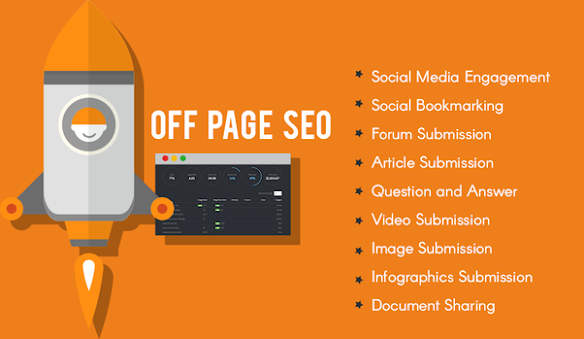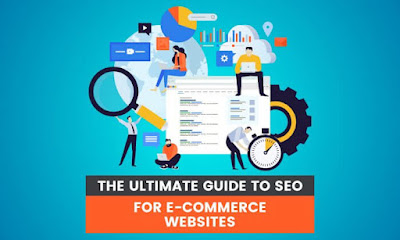Off-page SEO techniques to rank a website
As the ranking factors increase, so do the demands placed on web pages. Thus, they must be able to compete with other sites in terms of both quality and quantity. In the quest for better rankings, you will need a well-optimized website that can meet user expectations and deliver results quickly. As such, optimization is vital to keep up with technology trends and search engine optimization (SEO). The goal of this article is to illustrate how off-page SEO techniques should be used by bloggers and websites at large to improve their rankings. This will also help guide you about best practices to consider when creating content for online publications. Also, it explains why off-page SEO techniques are useful for SEO and what types of websites could benefit from using them.
What Is Off-Page SEO?
Off-page SEO techniques are considered one of the most important aspects of digital marketing. They include all elements of a webpage, such as meta description, title tags, page tags, image alt text, and the like. These are essential techniques to ensure that your website's search engine optimization is effective, relevant, and credible. As people are increasingly adopting Google and other related services, optimizing your website's SEO is more important than ever before. One great example would be if someone searches for "SEO tips", the result would show the most searched keywords: keyword search volume, competition analysis, and even brand affinity. Therefore, off-page SEO techniques play an increasingly significant role in promoting your brand in today's market. Furthermore, if your business relies heavily on social media platforms, they play a huge role in ensuring traffic and social engagement.
So What Are Off-Page SEO Methods to Use Every Time?
Off-page SEO has three major methods: technical, semantic, and technical-semantic. Each is tailored to specific targets, which include website performance, link building, and more. Here, we show some examples of these off-page SEO techniques to give you an insight into what is possible with each type.
1. Technical SEO - Keywords
As mentioned earlier, the main goal of every website owner is to optimize its search engine optimization. Of course, the primary goal of any SEO strategy is to find keywords that target users' search queries. But not all keywords are good choices for your content marketing or advertising campaign. So, you need to conduct keyword research and identify the most competitive keywords. This way, you can create an appropriate landing page for your blog, for ads, and a whole range of other kinds of pages. You need to select a handful of keywords and stick to them. However, keyword research is just part of technical SEO, which takes advantage of machine learning to identify topics that are relevant to your audience. For instance, you may have heard phrases like “social media marketing” or “digital marketing strategies”. Now, all you have to do is to look them up on Google and see which keywords are ranked in the top 5 of Google.
2. Semantic Search Terms & Phrases
When it comes to search engines like Google, Yahoo, Microsoft Bing, etc., their algorithms analyze vast amounts of information to determine the most suitable words people are looking for. You can choose the right combination of keywords, subtopics, phrases, and other elements to make your website more readable and easier to navigate for anyone who wants to reach your company. As you can see, one of the main reasons to write posts about topics like personal development, traveling, and others is that many users use Google Search Engine to search for things. As such, you need to provide something that matches their needs. Using semantic search terms and phrases increases the number of clickable links and helps boost conversion for the same.
3. Link Building
Link building is another way to increase organic sales on your website. It is all about linking a single page, document, or product to your homepage or blog post by creating backlinks. By connecting two or more websites, you increase your chances of being listed in their search results. It allows your visitors to find out about you, your work, and your products through social media or directly on your website. Remember that there are various ways to connect websites, but creating high-quality articles and videos related to your topic can increase the likelihood of linking to your site.
There are plenty of ways to learn more about SEO and how it works. We can show you our latest video series on YouTube: How to Create Great Content Ideas
A word of caution, though: don’t rely solely on tools that claim to maximize your organic presence. There is no magic bullet. If you are serious about your blog or online work as a blogger, likely things are missing from the list of tactics. That said, try to avoid overly complicated approaches that seem too difficult to execute. Instead, focus on small steps — one of those is reading content and making sure the keywords users use are clear!




Comments
Post a Comment